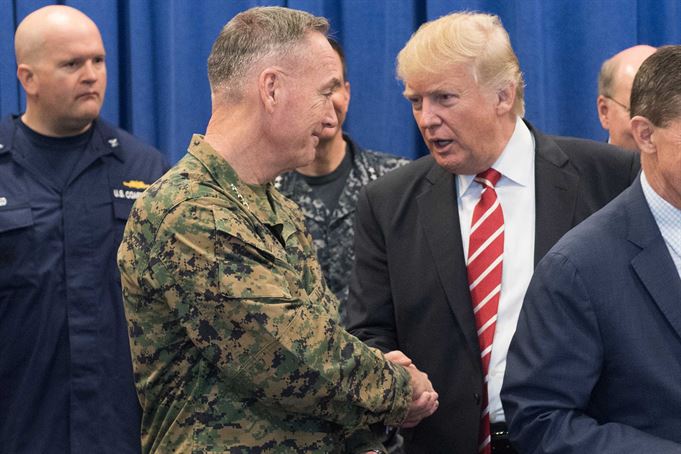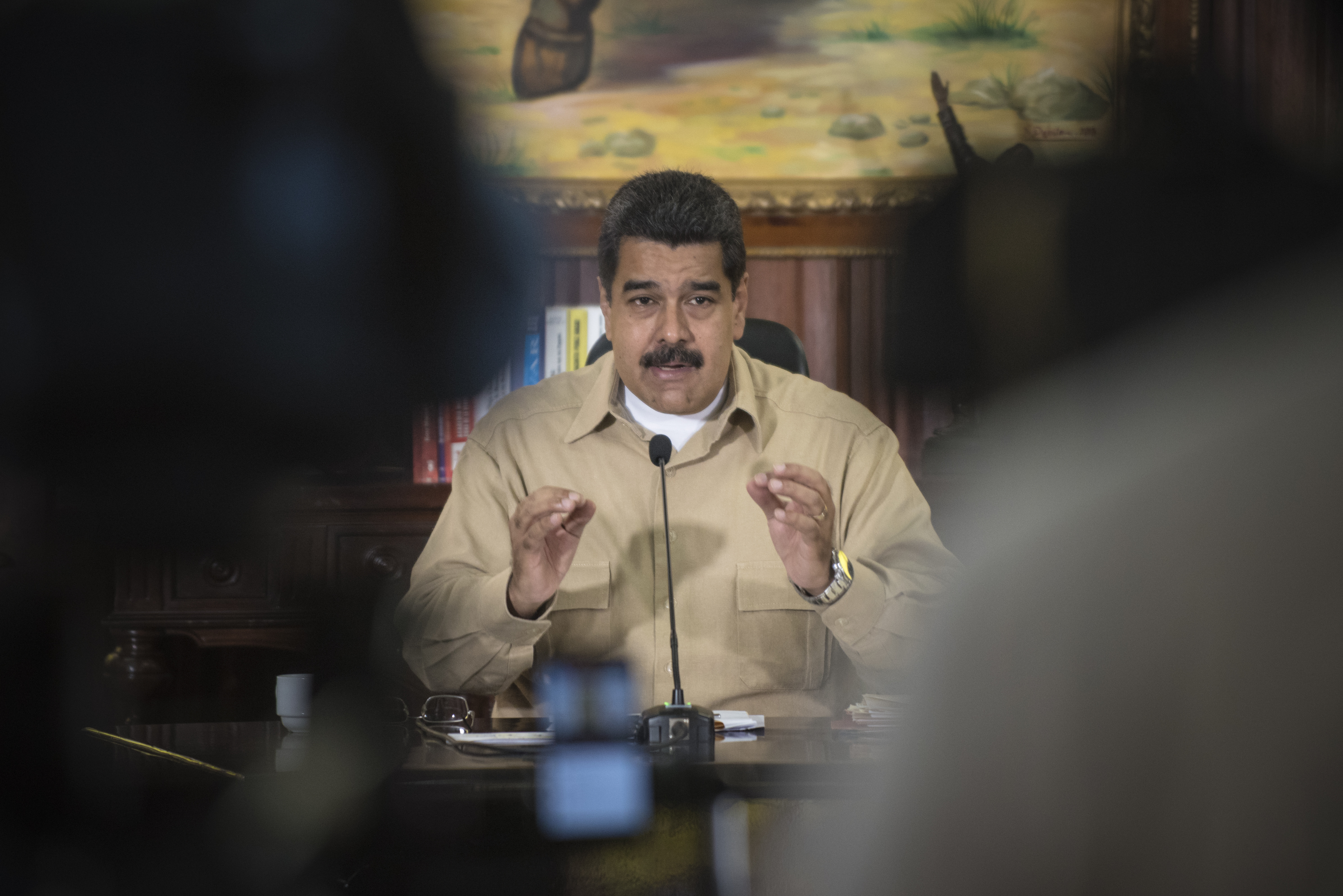Uncivil Military Relations?
We had many indications during the 2016 campaign that a Donald Trump presidency would be bad for civil-military relations.

Published by The Lawfare Institute
in Cooperation With

We had many indications during the 2016 campaign that a Donald Trump presidency would be bad for civil-military relations. The candidate hurled insults at prisoners of war and Gold Star family amembers, said America’s generals had been “reduced to rubble” under Presidents Bush and Obama, and signaled that he would neither respect civil-military norms nor bring with him into office any adherence to longstanding American foreign policy views.
It’s clear now that these signals failed to fully prophesize how bad civil-military relations would become under President Trump. Few laws constrain the president in this realm: He must do what he (or someday she) believes is right for the nation’s defense, its military, and society. Unfortunately, as both Jack Goldsmith and I have noted, Trump has shredded one civil-military relations norm after another. These include, but are not limited to, appointing a disproportionate share of senior military officers to high posts; blaming the generals for a risky raid in Yemen that Trump himself ordered; politicking before military audiences; battling with the intelligence community (which is inextricably intertwined with the military through defense agencies like DIA and NSA); deploying his chief of staff (retired Marine Gen. John Kelly) to attack a Congresswoman over handling of a bereaved Army widow; tweeting uncoordinated orders banning transgender troops; and encouraging troops to join the political fray on Trump’s side. And now, to top it all off, Trump now wants a military parade, something that will politicize the military even more.
All of these breaches matter because they erode the special place in society occupied by the U.S. military. Over nearly 250 years, the American armed forces have evolved into large, professionalized, politically neutral agencies that swear allegiance to the Constitution and obey orders from presidents of both parties. To the extent that military agencies or leaders have policy preferences (and they do!), those preferences are subordinated to those of elected civilian leaders and their appointees. When disagreements occur (and they often do!), civilians ultimately decide the outcome, in what civil-military relations scholar Eliot Cohen has called the “unequal dialogue.”
After last week’s reports that Trump wanted a military parade—and that the Pentagon was actually planning one—Jack Goldsmith and I sat down for a wide-ranging discussion on the Lawfare Podcast about civil-military relations in the Trump era. We started with the state of these norms before Trump and then marched through several notable episodes of the Trump presidency, also noting extent to which he has changed the presidency itself. Even in a 45-minute conversation, we had a remarkable amount to talk about. Trump may be bad for civil-military relations—but he is good for those commenting on it.
As we move into the second year of the 45th presidency, three big questions loom for civil-military relations under Trump—and after Trump:
How will new norms of civil-military behavior evolve under Trump? We have seen military leaders develop new norms of behavior under President Trump over the past year. After the violence in Charlottesville last August, each of the service chiefs spoke out forcefully regarding their respect for diversity and opposition to extremist violence. Similarly, after President Trump tweeted an order barring transgender troops, military leaders moved with all deliberate speed to process that order and carry it out. The result was, as I wrote in Slate, something in between a “yes” and a “no”—a norm of “respectful disobedence” that buys time and creates room for military leaders to nudge presidential orders towards a better policy outcome. This new norm looks good or bad depending on your perspective. It also suggests, as Lawfare’s Quinta Jurecic wrote this weekend for the Washington Post, that institutions will not save us from Trump. We might cheer today as the military pushes back against Trump, but fear it tomorrow if (or when) it pushes back against a more wise and popular president.
Second, assuming these civil-military norms continue to evolve, will they outlast Trump? It’s possible that Trump is merely an anomaly and that powerful institutional norms will snap back upon his departure. However, it’s more likely that new norms will set in concrete as institutions acquire power, primacy, and resources during the Trump presidency. Service chiefs who acquire power over particular issues will not easily cede that power during the next presidency; Congressional habits of oversight will not automatically recede either. During his presidency, Trump will select each service chief, combatant commander, and officer of three or four-star rank. These officers will continue to serve after Trump departs the White House; any litmus tests used in their selection will shape the pool of military leaders for the next presidency.
Third, will Trump’s civil-military behavior cause worse national security outcomes? Trump’s civil-military outrages, volatility, and unconventional communications have contributed to a sense of global instability—there are clearly better ways to maintain the peace that threatening “fire and fury” against North Korea and tweeting insults in the’ direction of its leaders. Similarly, Trump could clearly demonstrate better decorum in meetings of his National Security Council—and demand better decorum of his top aides, who seem perpetually at war with each other, and with the president too.
But at the end of the day, it’s unclear whether better process, more respect, or more decorum will give us better national security outcomes. Or, put another way, it’s unclear that Trump’s bad behavior has led to worse national security outcomes or decisions, let alone caused them—and whether it will continue to do so in the future. We think it will and have some evidence thus far that it already has affected policy for the worse, such as the flawed process that birthed a deeply flawed travel ban. But we will not be able to fully judge the Trump presidency in this regard until it ends.




_c.jpg?sfvrsn=9bbcc085_3)
